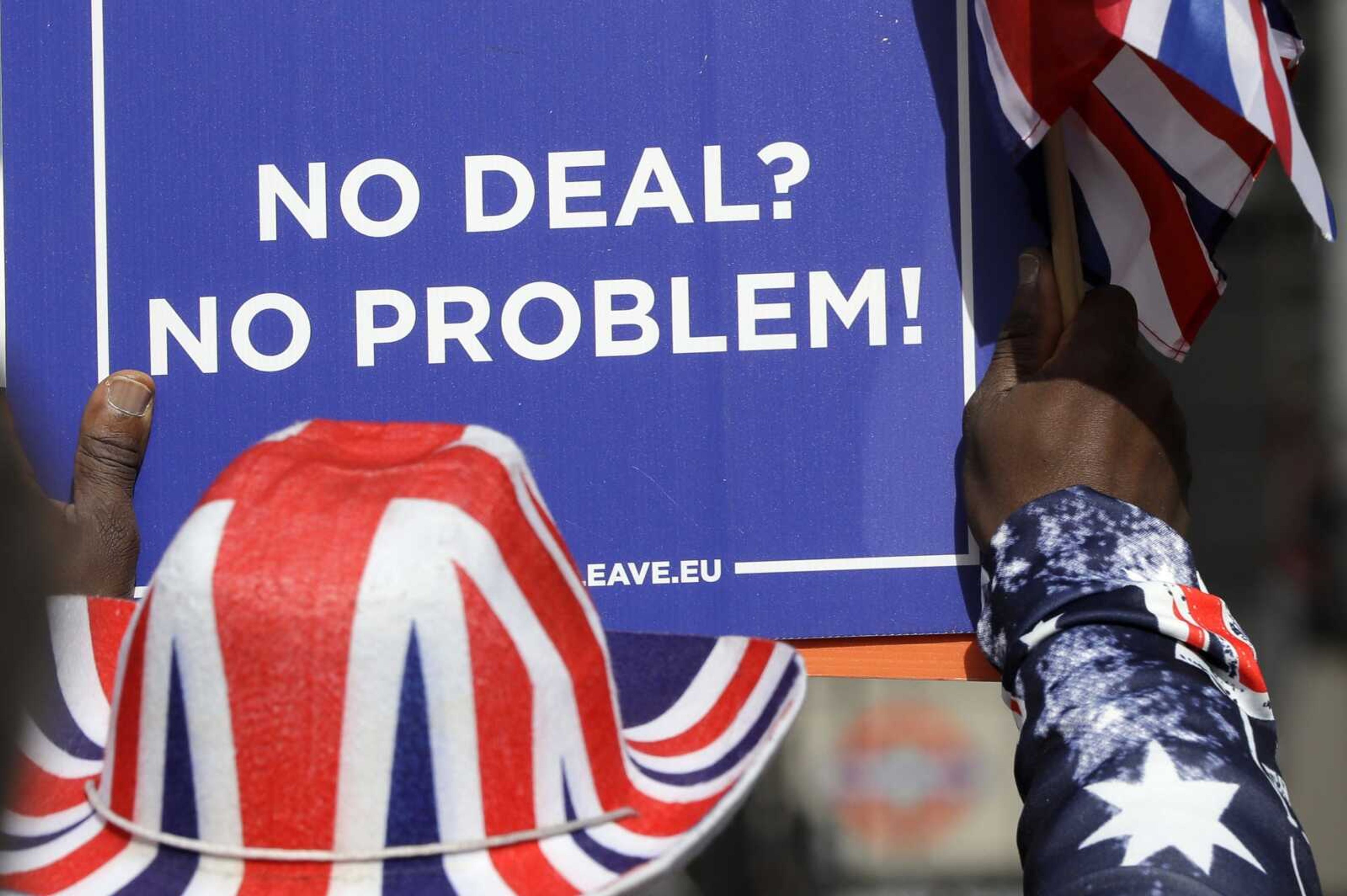U.K. lawmakers vote against no-deal Brexit
LONDON -- In a tentative first step toward ending months of political deadlock, British lawmakers voted Wednesday to block the country from leaving the European Union without a divorce agreement, triggering an attempt to delay that departure, due to take place March 29...
LONDON -- In a tentative first step toward ending months of political deadlock, British lawmakers voted Wednesday to block the country from leaving the European Union without a divorce agreement, triggering an attempt to delay that departure, due to take place March 29.
Parliament is scheduled to decide today whether to put the brakes on Brexit, a vote set up after lawmakers dealt yet another defeat to Prime Minister Theresa May amid a crisis over Britain's departure from the European Union.
The lawmakers' 321-278 vote has political but not legal force and does not entirely rule out a chaotic no-deal departure for Britain. But it might ease jitters spreading across the EU after lawmakers resoundingly rejected May's divorce deal Tuesday. Exiting the EU without a deal could mean major disruptions for businesses and people in the U.K. and the 27 remaining EU countries.
Speaking with a raspy voice after weeks of relentless pressure, May hinted she plans to make a third attempt to get lawmakers to support her Brexit deal, which they already have rejected twice.
She said Parliament faced a "fundamental choice" -- a "short, technical extension" if lawmakers approve a divorce deal with the EU in the next week or a much longer delay to Brexit if they don't.
The EU warned voting against no-deal Brexit wasn't enough to stop it. By law, Britain will leave the EU on March 29, with or without a deal, unless it cancels Brexit or secures a delay.
"There are only two ways to leave the EU: with or without a deal," a European Commission official said. "The EU is prepared for both. To take no deal off the table, it is not enough to vote against no deal -- you have to agree to a deal."
The official spoke on condition of anonymity because of the sensitivity of the unresolved situation.
Earlier, chief EU negotiator Michel Barnier warned "the risk of a no-deal has never been higher."
As Britain teeters ever closer to the edge of the Brexit cliff, lawmakers are trying to seize control from the divided and squabbling government, although it's far from clear if they can agree on a way forward. There are competing factions supporting May's deal, a "softer" deal to keep close ties with the EU, a no-deal Brexit, or even a new referendum on Britain's EU membership.
Parliament likely will agree to delay Brexit, but it would need EU approval. The bloc -- openly exasperated by Britain's continuing Brexit crisis -- warned the U.K. would need to present a strong reason for any extension.
"I am against every extension -- whether an extension of one day, one week, even 24 hours -- if it's not based on a clear opinion of the House of Commons for something," said the European Parliament's chief Brexit official, Guy Verhofstadt. "Please make up your minds in London, because this uncertainty cannot continue."
The bloc also is reluctant to consider a delay going beyond elections to the European Parliament in late May, because it would mean Britain would have to participate in the polls even as it prepares to leave.
Both Britain and the EU have ramped up planning for a no-deal Brexit, which would rip up decades of rules for travel and trade between Britain and the bloc. Economists say it could cause huge upheaval, with customs checks causing gridlock at U.K. ports, new tariffs triggering sudden price increases and red tape for everyone from truckers to tourists.
The U.K. government announced its plans for the Irish border in the event of a no-deal Brexit, saying it wouldn't impose new checks, duties or controls on goods coming from EU member Ireland into Northern Ireland. It also said it wouldn't slap tariffs on 87 percent of goods coming into Britain from the EU -- though there would be new levies on imports of some items including meat and cars.
The tariffs, intended to be temporary, wouldn't apply to goods crossing from Ireland to Northern Ireland, raising fears the plan would spark a rise in smuggling.
Irish Prime Minister Leo Varadkar said under the proposals, "Northern Ireland will become a backdoor to the European single market, and I think that in a matter of months that will lead to the need for checks at Northern Ireland's ports."
"I don't think the U.K.'s proposals will be workable for very long," he said during a visit to Washington.
Connect with the Southeast Missourian Newsroom:
For corrections to this story or other insights for the editor, click here. To submit a letter to the editor, click here. To learn about the Southeast Missourian’s AI Policy, click here.










